Innovative Channel Estimation Techniques for MIMO Systems Using RLS and LMS Algorithms in 5G Networks
Problem Definition
Channel estimation in MIMO or DIMM systems is a critical component of wireless communication that greatly impacts system performance. Accurate estimation of channel conditions is essential for optimizing signal transmission, reducing interference, and maximizing data throughput. However, existing techniques for channel estimation in such systems often suffer from limitations and problems that hinder their effectiveness. These may include inaccuracies in estimating channel parameters, difficulty in capturing time-varying channel conditions, and high computational complexity.
In order to address these challenges and improve the efficiency of channel estimation in MIMO or DIMM systems, it is necessary to explore and implement new techniques that can deliver more accurate and reliable results.
By developing innovative algorithms and methodologies for channel estimation, researchers and practitioners can enhance the overall performance of wireless communication systems and enable them to meet the growing demands for high-speed data transmission and seamless connectivity.
Objective
The objective of this project is to enhance the efficiency and effectiveness of channel estimation in MIMO systems by exploring and implementing new techniques. By incorporating relay channels and AWGN noise, the researchers will analyze Recursive Least Squares (RLS) and Least Mean Square (LMS) algorithms using MATLAB. The goal is to compare the performance of these algorithms to determine the most accurate and efficient method for channel estimation in MIMO systems. Ultimately, the project aims to improve wireless communication systems' overall performance by optimizing the channel estimation process and meeting the demands for high-speed data transmission and seamless connectivity.
Proposed Work
The project aims to address the crucial issue of channel estimation in MIMO systems by exploring various techniques to enhance system performance. By incorporating relay channels and AWGN noise, the researchers plan to analyze and implement different methods such as Recursive Least Squares (RLS) and Least Mean Square (LMS) using MATLAB. The rationale behind choosing these specific algorithms is their proven effectiveness in channel estimation tasks, and by comparing the results of each technique, the researchers can determine which one offers the best performance in terms of accuracy and efficiency in the MIMO system. The use of MATLAB as the software tool ensures a reliable and comprehensive analysis of the implemented techniques, allowing for a thorough evaluation of the channel estimation process in MIMO systems.
In summary, the proposed work involves a systematic approach to investigate and implement channel estimation techniques in MIMO systems, with a focus on enhancing system performance through the incorporation of relay channels and AWGN noise.
By utilizing MATLAB and comparing the results of RLS and LMS algorithms, the researchers aim to provide valuable insights into the efficiency and effectiveness of different channel estimation methods. This project's significance lies in its potential to improve communication systems' overall performance by optimizing the channel estimation process in MIMO systems, thus contributing to advancements in wireless communication technologies.
Application Area for Industry
This project on channel estimation in MIMO or DIMM systems can be applied in various industrial sectors such as telecommunications, aerospace, automotive, and manufacturing. In the telecommunications industry, accurate channel estimation is vital for improving the performance of wireless communication systems. In aerospace, implementing efficient channel estimation techniques can enhance the reliability of communication systems in aircraft. For the automotive sector, reliable channel estimation is essential for enabling seamless connectivity in smart vehicles. In manufacturing, optimizing channel estimation can improve the efficiency of wireless communication networks in smart factories.
By implementing the proposed solutions for channel estimation in MIMO or DIMM systems, industries can address specific challenges such as reducing interference, improving data transfer rates, increasing network reliability, and enhancing overall system performance. The benefits of integrating these solutions include improved signal quality, reduced latency, enhanced spectral efficiency, better coverage, and increased data throughput. Overall, implementing efficient channel estimation techniques can lead to enhanced communication capabilities and better operational efficiency across various industrial domains.
Application Area for Academics
This proposed project can significantly enrich academic research, education, and training in the field of wireless communication, specifically focusing on channel estimation in MIMO or DIMM systems. Investigating efficient techniques for channel estimation is crucial for improving system performance in wireless communication networks.
By utilizing MATLAB to explore and implement various channel estimation techniques such as Recursive Least Squares (RLS) and Least Mean Square (LMS), researchers, MTech students, and PhD scholars can gain valuable insights into the effectiveness of these methods. The project provides a practical demonstration of how to add a relay channel and AWGN noise to the system, compare the performance of RLS and LMS algorithms, and generate comparison outputs to analyze their efficiency.
The use of advanced algorithms like RLS and LMS in this project opens up opportunities for exploring innovative research methods, simulations, and data analysis within educational settings.
Researchers can leverage the code and literature of this project to enhance their work in the field of wireless communication, particularly in improving channel estimation techniques in MIMO or DIMM systems.
Moving forward, the future scope of this project could involve further exploring other advanced algorithms, incorporating real-world data sets for analysis, and expanding the research to cover additional aspects of wireless communication systems. This project holds significant potential for advancing knowledge and skills in the domain of wireless communication, making it a valuable resource for academic research, education, and training.
Algorithms Used
The algorithms used in this project are Recursive Least Squares (RLS) and Least Mean Square (LMS). The Recursive Least Squares (RLS) algorithm recursively finds coefficients that minimize a weighted linear least squares cost function for input signals. The Least Mean Squares (LMS) algorithm adjusts its filter coefficients to converge towards the optimal filter weight.
These algorithms were employed in conducting channel estimation for MIMO or DIMM systems using MATLAB. The researchers added a relay channel with AWGN noise to the system and implemented RLS and LMS techniques.
A comparison file was run to evaluate the effectiveness and efficiency of each method. The video tutorial also demonstrates how to generate comparison outputs for further analysis.
Keywords
channel estimation, MIMO system, DIMM system, wireless communication, MATLAB, code running, relay channel, AWGN noise, Recursive Least Squares (RLS), Least Mean Square (LMS), SNR, transmitter, receiver, beta rate, modulation, FFT data, demodulation
SEO Tags
channel estimation, MIMO system, DIMM system, wireless communication, MATLAB, code running, relay channel, AWGN noise, Recursive Least Squares, RLS, Least Mean Square, LMS, SNR, transmitter, receiver, beta rate, modulation, FFT data, demodulation
| Shipping Cost |
|
No reviews found!














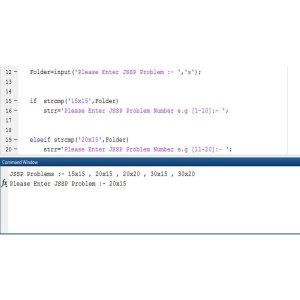
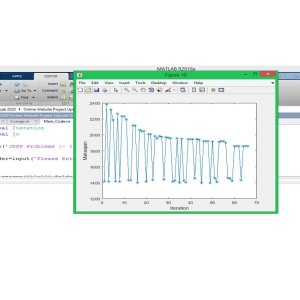
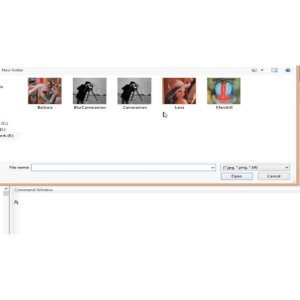
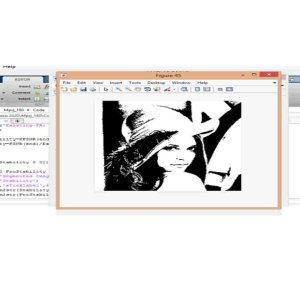
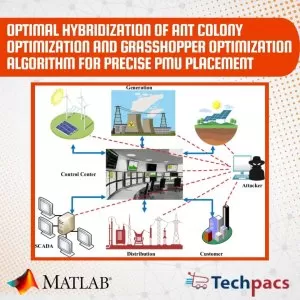
































No comments found for this product. Be the first to comment!